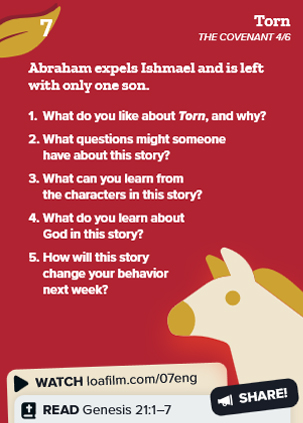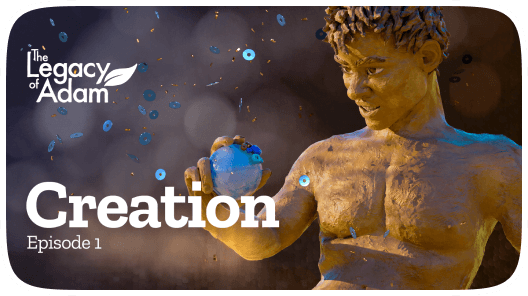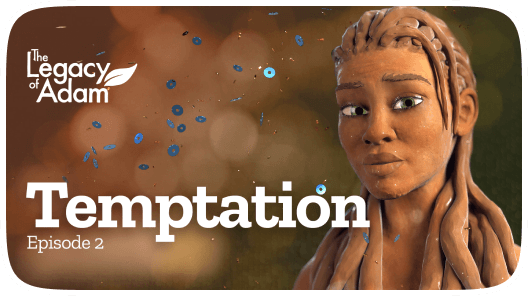Featured Videos
Ep 4: Count the Stars
Abram, a man of faith, is called on a miraculous journey. As he faces doubt and sacrifice, a divine promise ignites his hope.
Ep 6: A Son
Abraham and Sarah receive news of a son, Isaac, from God, despite their old age.
Ep 8: Unbearable
Abraham’s faith is tested as he prepares to sacrifice Isaac, thus highlighting the challenges of adhering to divine will.
Ep 9: Sacrifice
Abraham’s faith and obedience earn God’s promise of blessings, a lasting covenant, and a key role in His plan for humanity.
Ep 7 | Torn
Joy and conflict intertwine as Isaac’s birth fulfills a divine promise, leading to celebration and strife within Abraham’s family, highlighting the challenges of faith and loyalty.
Bible Reference
Related Sources
Related FAQs
Sarah feared that Ishmael, as the older son, would threaten Isaac’s inheritance and position. In ancient culture, the firstborn son had legal rights, but God affirmed Sarah’s concern—He had chosen Isaac as the child of the covenant. This wasn’t just about jealousy; it was about the promise.
It was deeply painful for Abraham, but God told him to listen to Sarah. Abraham trusted that God would care for Ishmael, and He did. The story highlights that obedience to God sometimes involves great personal sacrifice—but it also shows God’s faithfulness to both sons.
No, the Qur’an doesn’t describe this event. In fact, Islamic tradition places Ishmael and Hagar in Mecca from the beginning, where Abraham later visits them and helps build the Kaaba. The biblical version is more detailed in terms of family conflict and emotional cost.
Because God specifically promised that Sarah would bear the covenant son. Ishmael was blessed too—God made him into a great nation—but Isaac’s birth was miraculous, and he represented the line through which the Messiah would come. It wasn’t favoritism, but divine purpose.
Because God is generous. Ishmael is still Abraham’s child, and God honors that relationship. While Isaac carries the covenant, Ishmael receives a promise of his own—twelve princes and a great nation. God’s grace isn’t limited to one path.
Her actions are certainly intense, but the Bible portrays her as a complex human being—not an idealized figure. Her jealousy likely came from years of pain and powerlessness. Yet even here, God doesn’t justify cruelty—but He uses broken human choices to advance His plan.
God doesn’t cause the division, but He works through it. The story reveals how deeply sin and mistrust can damage relationships—but it also shows that God watches over those who are cast out. He meets Hagar again in the wilderness, proving that no one is forgotten.
Very much so. Muslims honor Ishmael (Isma’il) as a prophet and ancestor of Muhammad. He is considered noble, obedient, and important in God’s plan. While the Bible and Qur’an tell his story differently, both agree that God’s hand was upon him.
The Hebrew word used can mean “mocking,” “playing,” or even “teasing.” Some rabbis saw it as playful; others saw it as threatening. Whatever the case, it triggered Sarah’s fear and ultimately a family crisis. The episode reminds us that broken trust can fracture even the closest bonds.
















